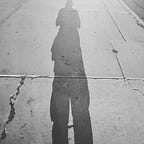The Dark Tower — Culture is Broken
The Internet has managed a lot following its recent introduction to history. Aside from connecting people that have no earthly business having anything to do with one another, it has also created a fertile ground for fanboys, obsessives, fascists, and freaks to otherwise cluster around a host of repugnant opinions and reactionary evaluations as Hollywood (in it’s infinite wisdom) slowly chokes us to death on their vomitous spew of nostalgia.
I point this out simply because this legacy of creative betrayal has finally spit in the eye of my own (admittedly) halfhearted sense thereof — for the Man in Black and the Gunslinger who followed. The Gunslinger, and the Dark Tower represent (despite my own complaints against the climax) some of the venerable Steven King’s best work.
And I just watched the movie; it was a sin — an unrepentant crime against narrative and literary experience. It made me mad, so the essay that follows isn’t grounded in a whole lot more than fist-shaking.
My apologies.
It’s tired to say that a movie can’t be as good as book (I’m not really convinced that this law is much more than deeply felt opinion). But no effort was really taken here. The first novel of the series upon which this disgusting amalgamated film is based, The Gunslinger, was probably one of the first I ever read. I have no memory of acquiring the original book, but I remember excitedly picking the sequel up in some bookshop when I was nine.
But I have since read and reread The Gunslinger a handful of times. The grizzled hero at its center might be a bit cliche, but the story of his fallen world and his hopeless quest to rescue it was an important narrative in my youthful imagination, and inspired much of what I love today about myth. It remains a dear favorite.
It opens simply: “The Man in Black fled across the desert, and the Gunslinger followed”. Ask those who know this book, and they remember this iconic opening line. The elements all in place from the first moment, Roland, the Gunslinger is unhurried, quiet, introspective. This is no race. This is something bigger then that. We are in the desert. Why? Because the stakes are impossibly high, and when you must risk everything to escape you make for the desert. You must claim what you can, and hope that pursuit will fall victim to the consequences. Which makes the entire thing’s somewhat meandering feel doubly captivating. Roland is a man who understands that great works take time. His place at the center of the narrative is the key to the effectiveness of the entire piece.
And when I heard that they’d cast Idris Elba for the movie, I was giddy.
Fuck you, Columbia Pictures.
Because the movie, of course, follows the story of Jake, the kid that Roland finds at the waystation (played by a terribly antiseptic Tom Taylor). Once he finds the gateway to Roland’s world, the title character takes on a supporting role in his own movie.
Now we have to pause here and consider this as the central crime at the heart of this film. We’re exposed (in the radioactive sense) to thirty minutes of completely pointless characterization; thirty minutes of mindless world-building and ham-handed science farce that supports one conclusion: this stupid white kid from New York has a real need for some escapism. His daddy issues run so deep that only another dimension will offer adequate solace. And as a consequence, they made Roland Deschain the babysitter; in their infinite wisdom, these butchers hired one of the greatest Black actors of our generation and turned him into the magical negro, who’s sole purpose is to help some white kid come of age. Not only is it shitty writing, it’s racist. And before you ask, yes, I’ve checked around. I’m can only image that the final film in the arc would have feature Jake, now a successful lawyer/writer/fighter pilot in Paris, looking back and wondering what happened to the man who taught him so much.
Fortunately, it bombed in theaters, so we should be safe from a sequel.
Compounding this joke is the degree to which poor Idris really tries to make something of his role. If he’d had the right framing, it could have been wonderful. But my hat’s off to McConnohey, who plays some weirdo in a suit (the Man in Black). He phones in every moment with a kind of perverse delight, as though winking at the all-consuming power of white privilege that allowed him to, not only get this job, but to be so bad at it.
Now, I’ve seen most of my memories co-opted into mushy nostalgia pieces at this point, so I can’t really be mad at the kinds of pointless cash-grabs that mark our culture today. The oligarchs of culture are as ossified and unoriginal a bunch as the nobility that guided France into the revolution — right down to the goofy shoes and shallow relationship to spirituality. Our most successful entertainers frequently revel in productions that celebrate the power that their wealth allows them over their fellows (Taylor Swift and Kanye West have built empires out of our envy).
And in that sense, The Dark Tower fits well in the prolapsed ruin of America’s cultural dominance. It’ s a product of a creative machinery that assumes that our presence carries more value than our contributions. So no doubt this movie was made to jerk off some executive or another who once read a book; this is a movie that was made because it could be made, and no moment of consideration was spared for the question of how to do it well, or indeed, if it should be done at all.
It shouldn’t have.
